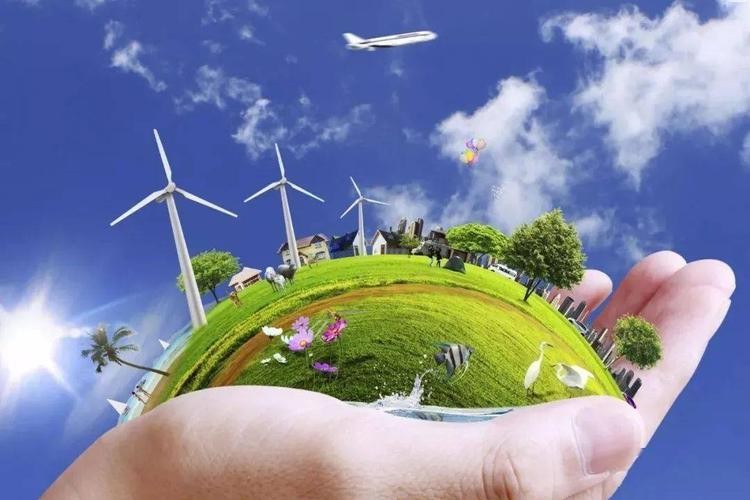NEWS CENTER
—
1、 Upgrading pollution prevention and control, the environmental sanitation operation system is undergoing structural changes
The report clearly states that "we will continue to fight for the protection of blue skies, clear waters, and clean lands" and requires "strengthening the coordinated treatment of multiple pollutants". In terms of road dust control, the report emphasizes the optimization of water spraying and dust reduction operation plans, and the establishment of a coordinated control mechanism for PM2.5 and ozone. Data shows that in 2024, through the mechanization of "high-frequency and wide coverage" operations, the average dust reduction in prefecture level cities decreased by 18.7% year-on-year, confirming the effectiveness of refined governance.
Regarding water environment governance, the report proposes to implement precise control of pollution sources in river basins, which echoes the data of a 23% year-on-year increase in river cleaning operations in 2024. It is worth noting that the report for the first time includes "new pollutant control" as a key focus of work, requiring the environmental sanitation system to "establish a special collection and transportation system for chemical packaging waste", which means that the construction of hazardous waste disposal capacity will become a new growth point.
2、 Carbon reduction targets are forcing technological innovation, and environmental sanitation equipment is entering an iteration cycle
The hard target of reducing energy consumption per unit of GDP by 3% directly promotes the process of new energy substitution in the field of environmental sanitation. The original report emphasizes that "the proportion of new energy sanitation vehicles will not be less than 35% by 2025", which will generate a demand for over 100000 equipment updates compared to the 28% proportion in 2024. According to data from pilot cities such as Shenzhen and Hangzhou, the daily average emission reduction of a single electric cleaning vehicle reaches 47 kilograms, and the benefits of large-scale application are significant.
In the solid waste treatment process, the report proposes to "build 20 national level demonstration bases for the application of recycled materials" and requires "the utilization rate of waste resources to exceed 65%". This requires a dual effort of intelligent transformation of sorting centers and upgrading of end of pipe disposal facilities. The integrated system of "AI visual sorting+biodegradation" implemented by a certain environmental sanitation group has achieved a technological breakthrough in increasing the conversion rate of kitchen waste to 82%.
3、 Deepening market-oriented mechanisms and fostering a new ecosystem of industrial development
The report clearly states for the first time the implementation of a carbon credit trading system for environmental sanitation services and the establishment of a conversion channel from emission reduction to carbon quotas and financial support. The "Clean and Clean Carbon Accounting System" piloted in Chongqing shows that a single new energy equipment can generate 4.2 tons of CCER per year, which can increase income by 2500 yuan per unit based on current carbon prices. This creates a new path for the industry to introduce social capital.
In terms of rural environmental governance, the report proposes to "improve the integrated franchising model of county-level environmental sanitation" and requires "achieving full coverage of specialized cleaning in established towns by 2025". The experience of the "Ten Million Project" in Zhejiang Province shows that adopting the PPP model can reduce per capita operation and maintenance costs by 31%, while driving up local employment rates by 19 percentage points, forming a win-win situation in the economic ecology.
4、 Digital transformation accelerates, smart sanitation opens up value space
The goal of building 100 demonstration cities for environmental sanitation IoT is to promote the industry's transformation towards data-driven development. The report emphasizes the construction of a full lifecycle management platform for environmental sanitation facilities. The "intelligent manhole cover+vehicle mounted sensing" system implemented by Shanghai Urban Investment has increased the efficiency of pipeline blockage detection by 40% and shortened the response time to within 15 minutes.
In the field of emergency management, the report requires the establishment of an intelligent generation system for extreme weather environmental sanitation plans. The application of "meteorological big data+vehicle scheduling algorithm" in Guangzhou has increased operational efficiency by 55% during the typhoon season, fully demonstrating the necessity of intelligent management. These innovative practices are reshaping the industry value evaluation system, and sanitation services are gradually shifting from cost centers to data asset operation centers.
conclusion
The deployment of the environmental sanitation industry in the government work report reflects the logic of transformation from end of pipe treatment to full process control, from single services to systematic solutions, and from public utilities to new growth poles of green economy. With the launch of the "Pollution Prevention and Control Battle 3.0 Version" and the implementation of the "Carbon Emission Reduction Target Responsibility System", the environmental sanitation industry is undergoing a critical leap from quantitative change to qualitative change. Enterprises that can seize the opportunity in technological innovation, model innovation, and management change will surely occupy the strategic high ground in the new journey of ecological civilization construction. As a pioneer enterprise in environmental equipment, Yaobang Group focuses on the research and manufacturing of new energy equipment, and has launched a multi scenario environmental sanitation vehicle equipment system to respond to the government's "dual carbon" strategy; Strengthen the construction of green factories, significantly reduce the full cycle carbon emission intensity, and form a replicable low-carbon transformation plan; Through intelligent garbage sorting technology and smart environmental sanitation platforms, we aim to assist in the precision of garbage classification and intelligent operation scheduling, providing a systematic solution for the industry. Facing the end of the 14th Five Year Plan, Yaobang Group will continue to increase investment in green technology and play a demonstrative role in pollution prevention and low-carbon transformation.
